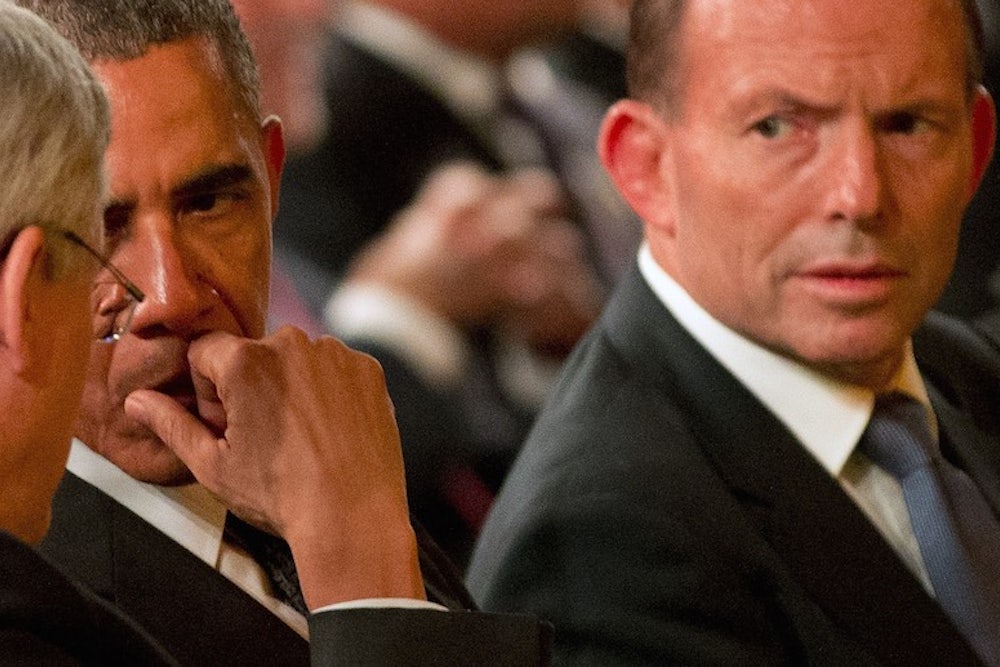In the last week, President Barack Obama made two major announcements on climate change that provided much-needed momentum for global negotiations in 2015.
By announcing a U.S.-China agreement on limiting greenhouse gas pollution and a domestic pledge of $3 billion to a climate fund for developing countries, Obama is hoping to press other polluting nations to make similar commitments. Or, at the very least, he’s trying to make it more politically uncomfortable for allies to continue with business as usual.
There are already signs he’s succeeding at the latter. Just look to two of the world’s most powerful climate change deniers—Canadian Prime Minister Stephen Harper and Australian Prime Minister Tony Abbott—for evidence.
At the very end of the G-20 talks in Australia, Harper broke with his usual ally on climate issues to announce Canada’s commitment to the Green Climate Fund, which helps poorer nations adapt to global warming. Until this point, it wasn’t clear whether Canada intended to make a donation to the fund. Abbott—Canada’s natural ally against clean energy growth—opposes it.
Harper didn’t say how much Canada will pledge, after the U.S. pledged $3 billion and Japan $1.5 billion. He claimed to support an "international agreement of binding obligations on all major emitters" ever since he took office in 2006. "For the first time, that is actually starting to take shape." Of course, Harper's record shows he is much less serious about the issue than he now claims.
Even so, this counts as a break between the two countries. According to a report from the Sydney Morning Herald, Abbott in June identified Harper as part of a “conservative alliance among ‘like minded’ countries” that would try to dismantle global efforts against climate change.
Abbott only very reluctantly allowed a call for donations to be included in the formal text of the summit at the end of the weekend. According to a European Union official, it was like “trench warfare” to get Australia to agree to the climate text. This weekend highlighted a weak spot in this alliance, and also offered some hope that under the right political pressure even countries as reluctant as Canada could soften their position.
The U.S. commitment to the Green Climate Fund helps tip the scale, because it is seen as a key piece to signaling a serious commitment on climate change ahead of the summit in Paris next year. It also shows how far the U.S. has come since the last major climate conference in Copenhagen in 2009. Peter Ogden, the Center for American Progress' director of International Energy and Climate Policy, says it’s a “huge boost to the negotiations because it’s a fulfillment to the key financial pledges in the Copenhagen Accord which will really enhance the United States credibility in the context of the Paris agreements.”
